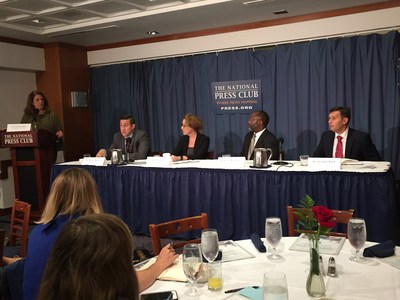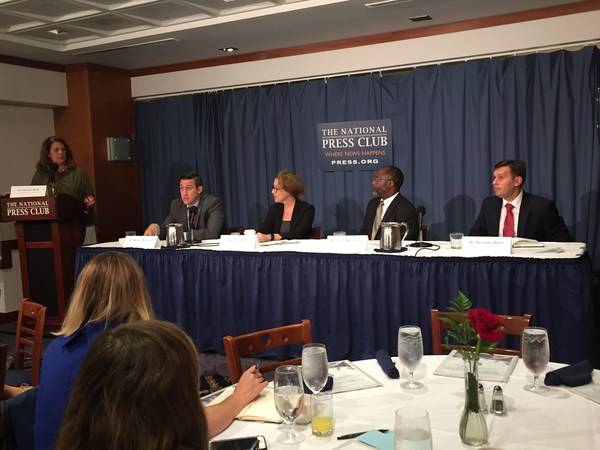Wounded Warrior Project Addresses Mental Health Issues Through Partnerships
WASHINGTON, Aug. 17, 2017 /PRNewswire-USNewswire/ -- Wounded Warrior Project® (WWP) targets its programs and services to the nearly 130,000 veterans and family members it serves. But WWP efforts directly impact millions more veterans through government policy efforts and partnerships.

In a survey of the injured veterans WWP serves, more than three out of four (76 percent) warriors live with the symptoms of post-traumatic stress disorder (PTSD).
One of those partnerships is Warrior Care Network® – an innovative effort with four top academic medical centers and the Department of Veterans Affairs (VA). Through this partnership, veterans living with PTSD and traumatic brain injury (TBI) are treated in intensive outpatient programs at one of the partner facilities such as the Road Home Program at Rush University Medical Center in Chicago. Warrior Care Network provides more than 70 hours of therapy for patients during the two-to-three-week program.
A recent event at the National Press Club gave WWP and Road Home a chance to spotlight the issues of the invisible wounds of war. Panelists looked at the concerns of access to care.
"I live in the third largest city in the United States of America, it is hard to find specialized clinicians," said Michael Brennan, PsyD, ABPP, an Army reservist, and Road Home associate clinical director. "If we can push more hospitals and institutions to accept TRICARE, we cover retirees that are veterans, National Guard, reservists, etcetera. Then we expand more providers for behavioral health types of issues."
TRICARE is the military's healthcare program for active duty, reservists, dependents, and some retirees. TRICARE has more than nine million people enrolled. But more is needed to help the veteran population. That is where private partnerships like Warrior Care Network come in.
"We've worked with some who don't even want to talk about their veteran experience," said Dr. Alex Balbir, Navy reservist, and Warrior Care Network director. "We can connect them with other veterans to talk with them and open things up for care."
The panel also talked about the idea of telehealth, which can connect a veteran with care remotely. Warrior Care Network partners use telehealth where laws allow. VA recently announced its telemedicine program for warriors nationwide.
To learn more, visit https://newsroom.woundedwarriorproject.org.
About Wounded Warrior Project
Wounded Warrior Project® (WWP) connects, serves, and empowers wounded warriors. Read more at https://www.woundedwarriorproject.org/mission.
SOURCE Wounded Warrior Project
